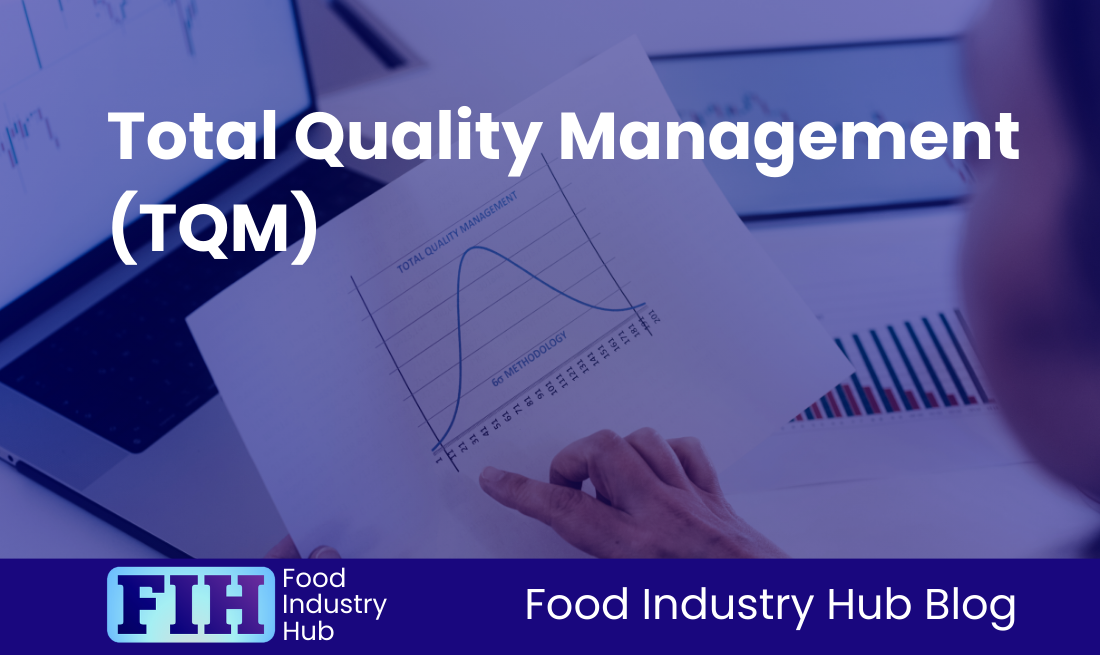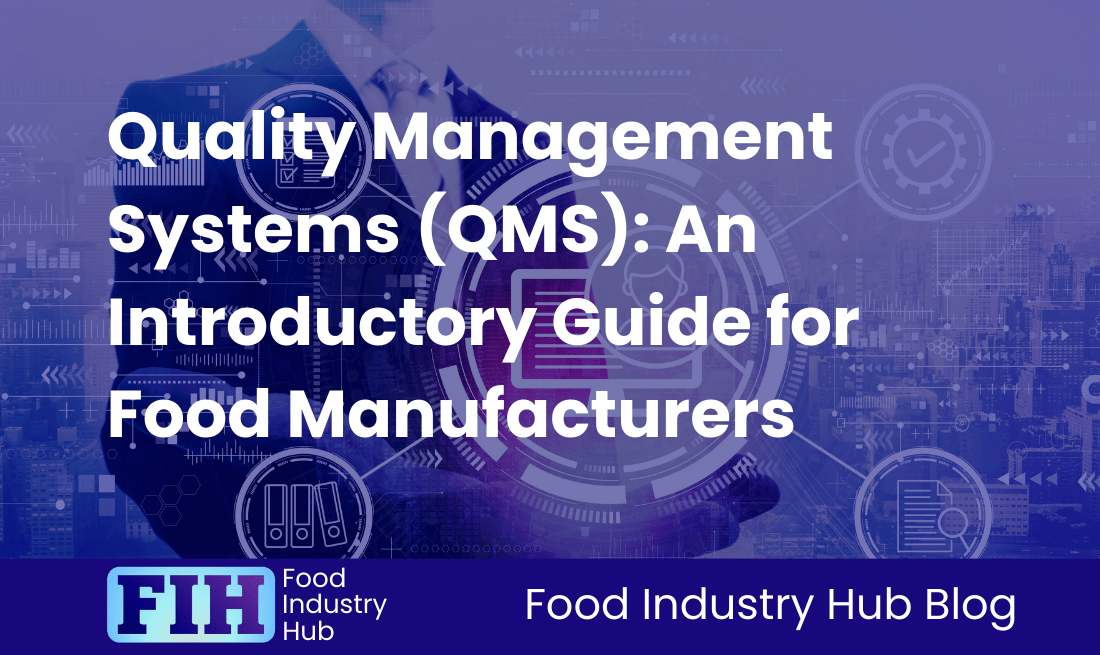Know: Internal Audits
Contents
Introduction
Key Takeaways
Defining Internal Audits
Strategic Objectives of Internal Audits
Exploring Compliance Frameworks and Certification Alignments
Applying Technology in Audit Management
Audit Process Optimisation and Best Practices
Navigating Regulatory Evolution and Global Implications
Leveraging Data Analytics and Predictive Compliance
Fostering Auditor Competency and Training Ecosystems
Conclusion
Introduction
In food production, a proactive approach towards risk management and progressive improvement carries significant weight in maintaining superior levels of food safety and quality. One of the most important tools in executing this is internal audits. Internal audits allow organisations to identify weaknesses, boost operational productivity, and cultivate a culture that prioritises quality assurance. As such, internal audits are a proactive measure that significantly reinforces public health safeguards and adherence to industry standards.
The Role and Function of Internal Audits
Internal audits are a systematic check on a company’s food safety management protocols against established guidelines and internal policies. These audits carry several strategic intentions including verifying the conformity to legal and regulatory obligations, spotting gaps that could put food safety or quality at risk, formulating actionable plans for continual progress, and gauging the efficiency of existing quality systems and operational practices. Addressing these goals helps organisations not only meet their statutory duties but also escalate overall efficiency and performance.
Benefits of Internal Audits in Food Manufacturing
The functions of internal audits in food manufacturing are wide-ranging. They improve compliance by ensuring that all processes meet the safety and quality standards determined by policies, procedures, and work instruictions – thereby mitigating legal risks and amplifying brand reputation. In addition, they reveal operational inefficiencies and non-compliant areas, enabling companies to refine their processes, enhance inventory management, and cut down operational costs. They also promote a culture of responsibility and proactive management. Proper execution of internal audits encourages employees to endorse best practices, thereby stimulating adherence to high standards and backing continual refinement.
Understanding Internal Audits: Beyond compliance checks
Understanding the operation of internal audits is significant as these checks provide a comprehensive assessment of food safety management systems that is much broader than just verifying compliance. A robust internal audit programme can lead to notable reductions in non-compliance incidents and food recalls, which consequently boost consumer confidence. Also, major compliance frameworks like the Food Safety Modernisation Act (FSMA) and ISO 22000 stress the need for detailed internal audits. They emphasise that organisations must assess both the results of their food safety practices and the procedures backing these practices.
Technology Integration and Auditor Competency in Internal Auditing
The integration of technology is significantly transforming the landscape of internal auditing. Digital systems help in simplifying compliance tracking, process documentation, and analysis of audit results – thereby helping support ongoing enhancements in food safety guidelines.
The proficiency of auditing teams is of great importance to the efficiency of internal audits. Auditors with comprehensive knowledge about food safety regulations are equipped to spot potential issues in advance and offer valuable insights into operational practices. Therefore, consistent training and development of auditing personnel is instrumental in upholding superior standards in audit performance.
Overview
Seen through these perspectives, it is clear that internal audits are not merely a compliance requirement. They embody a strategic pillar in efficient food manufacturing. Implementing a thorough internal audit programme improves food safety, drives operational efficiencies, and encourages a committed dedication to quality.
Key Takeaways
Internal audits serve as fundamental tools in the food manufacturing sector, acting as preventative measures for risk management, compliance, and ongoing enhancement of operations. The role of internal audits advances past simple compliance checks, leading to considerable enhancements across numerous operational aspects.
Promotion of Continuous Improvement
The main strategic objective of internal audits is the emphasis on constant improvement. By methodically assessing processes, internal audits highlight opportunities for development, which is a significant aspect in reaching the targets of quality and safety in food manufacturing. This ongoing evaluation aids in compliance with mandatory regulations and bolsters operational efficacy, ultimately benefiting the overall efficiency of the organisation.
Compliance Structures
Internal audits hold an essential position in ensuring that operations fulfil local, national, and international standards. They aid organisations in evaluating adherence to industry benchmarks, citing the BRCGS Global Standard for Food Safety as an example, thus shielding against compliance implications connected to non-compliance. Moreover, audits authenticate the effectiveness of various compliance strategies, guaranteeing that safety and quality objectives are consistently achieved.
Integration of Technology
The inclusion of technology in audit management noticeably enhances the efficiency and precision of audits. The introduction of digital tools to the audit process refines data analysis and improves risk assessment. By applying technology, organisations are better equipped for the anticipation of possible risks, and the implementation of successful risk mitigation strategies.
Auditors’ Competencies
The skills of auditors are essential to the effectiveness of the audit process. Continuous professional development helps to ensure that auditors stay current with up-to-date regulations and best practices in the industry. This expertise is crucial for executing objective assessments and for identifying risks promptly, eventually contributing to better compliance and operational efficiency.
Internal audits are not just instruments for ensuring compliance, but they also play a significant role in encouraging a culture of continuous improvement, effective risk management, and enhancing overall operational success in the field of food manufacturing.
Food Industry Hub Management Systems can significantly boost the effectiveness of your food safety and quality management system, leading to improved confidence and elevated quality assurance throughout your operations.
Defining Internal Audits
In the food manufacturing industry, internal audits represent comprehensive evaluations performed by an organisation’s knowledgeable staff. The aim of these audits is to gauge the effectiveness of the organisation’s food safety management systems. They focus on potential hazard identification, ensuring adherence to varying benchmarks such as Hazard Analysis and Critical Control Points (HACCP), GFSI-benchmarked assurance schemes, customer codes of practice, and legal obligations such as aherence with the FDA’s Food Safety Modernization Act (FSMA). The key objectives include enhancing product quality, bolstering consumer trust, and promoting public health by ensuring safety requirements for food products are met.
The role internal audits play is essentially proactive, contributing to the maintenance of food safety. Facilities implementing effective internal audit programs have reported considerably lower instances of regulatory non-compliance and foodborne illnesses. By highlighting areas for improvement, these audits assist organisations not just to fulfil regulations, but also to progress operational efficiency and product integrity.
Proactive Nature of Internal Audits in Risk Mitigation and Continuous Improvement
The proactive approach of internal audits, particularly in managing risk, stands as one of their most significant attributes. Systematic examination of food safety practices enables organisations to spot potential risks before they transform into serious issues that necessitate expensive corrective actions.
This type of strategy encourages the implementation of corrective actions and strengthens an organisation’s operational resilience. Identifying non-conformities, improving employee training, and establishing strong feedback mechanisms are key constituents of this proactive approach. For example, active employee participation in the audit process often leads to better adherence to food safety practices, creating a culture of accountability and vigilance. Similarly, effective internal audits support continuous improvement by endorsing best practice adoption and adapting to changing regulatory standards – thereby maintaining competitive and compliant organisations.
Differentiation from External Audits and Cultural Transformation
Internal audits are considerably different from external audits, which are conducted by independent third-party organisations or customers aiming to validate compliance with external regulations and standards. While external audits mainly serve as approval or certification tools, internal audits focus on the enhancement of operational processes, identifying areas for improvement, and instilling a culture of safety and quality within the organisation.
Internal audits play a role beyond simple compliance checks, they promote cultural transformation within an organisation. Engaging all levels of the workforce, internal audits propagate a sense of shared responsibility for food safety, motivating a collective commitment to quality. By incorporating these practices into the daily routines of employees, organisations can ensure that food safety becomes a fundamental value and operational priority, effectively bridging the gap between compliance and cultural commitment to excellence.
Internal audits play an indispensable role in meeting regulatory demands and advocating a robust organisational culture focused on quality and safety in the food manufacturing industry. They enable proactive risk management, support continuous improvement, and foster a culture of accountability and dedication to food safety best practices.
Strategic Objectives of Internal Audits
Internal audits play an essential role in the fulfilment of strategic objectives. These objectives most notably involve proactive risk mitigation and the encouragement of continuous improvement. The aims of such audits include ensuring compliance with regulatory standards, enhancing operational efficiency, and working towards the improvement of product quality. Key strategic objectives revolve around adherence to food safety regulations, the identification of potential areas for process optimisation, and the mitigation of risks associated with food production.
Proactive Risk Mitigation
The ability to identify potential risks before they escalate into more significant issues is a central function of internal audits. This forward-thinking approach helps food manufacturers to address safety concerns and ensure compliance withassurance schemes such as IFS and BRCGS as well as regulations like the Food Safety Modernisation Act (FSMA), which advocates prevention over reaction. Internal audits, by consistently reviewing operational practices and procedures, can identify hazards related to food safety and highlight quality issues at an early stage. This swift action allows for corrective steps to be taken that prevent costly recalls and safeguard consumer safety. A persistent emphasis on risk management promotes accountability and encourages staff to uphold high standards of work.
Driving Continuous Improvement
Beyond risk mitigation, internal audits assist organisations in the identification of inefficiencies and areas in need of improvement, driving continuous enhancement within the business. These evaluations can lead to process optimisations that not only increase productivity but also bring about cost reductions within operations. Utilising insights from audits, food manufacturers can adopt best practices that align with industry standards; this increases operational efficiency and market competitiveness. Regular audits also serve as a valuable training tool for employees, promoting an environment where quality and compliance are key aspects of the corporate culture.
Differentiation Between Internal and External Audits
It’s essential to understand the difference between internal and external audits for effective quality assurance.
Internal Audits are undertaken by internal auditors or employees whose primary goal is to assess performance, identify operational efficiencies and ensure both internal and external standards are being adhered to. Improving processes, enhancing internal controls, and driving continuous improvement are amongst their central aims. Hence, internal audits play a considerable role in preparing for external audits by identifying and addressing potential compliance issues, thereby reinforcing operational reliability and quality standards.
In contrast, External Audits are generally conducted by independent third-party auditors. Their main focus is on the verification of compliance with external standards and regulations. These auditors provide impartial assessments that are important for stakeholders such as investors and regulatory bodies, ensuring the organisation operates transparently and sticks to legal frameworks. Even though external audits can confirm compliance and performance, they do not contribute as directly to operational improvements as internal audits.
Key Terms
A proper understanding of certain specific terms is necessary to appreciate the strategic role of internal audits within the food manufacturing industry.
GFSI Benchmarks
The Global Food Safety Initiative (GFSI) provides recognised standards for evaluating food safety management systems. By meeting GFSI benchmarks, food manufacturers can maintain high levels of quality and safety, comply with stringent international food safety regulations. Internal audits often assess an organisation’s alignment with these benchmarks to improve consumer trust and meet global safety expectations.
Non-Conformance
Non-conformance defines the divergence of processes, products, or operations from established standards or regulatory requirements. Identifying non-conformances during audits helps in maintaining compliance, as it ensures manufacturers are aware of and can promptly address these discrepancies. Through meticulous documentation and rectification of non-conformances, companies can protect their reputation and avoid future quality issues.
Corrective and Preventive Actions (CAPA)
CAPA involves systematic processes designed to address identified issues and prevent their recurrence. Corrective actions manage non-conformances that have already occurred, while preventive actions aim to prevent potential risks from leading to issues. This effective approach supports compliance and aids in driving ongoing improvements within the food manufacturing operations.
Through these strategic objectives and a clear understanding of related terms, food manufacturers can see internal audits as strong tools for ensuring industry safety, quality, and compliance.
Sign-up for the Food Industry Hub Mail Service
We regularly produce new content for food industry professionals, and the Food Industry Hub Mail Service is the best way to stay up to date with the latest additions.
Signup today to be added to the Food Industry Hub mailing list.
Exploring Compliance Frameworks and Certification Alignments
In the food manufacturing sector, sustaining alignment with noteworthy global standards like ISO 22000 and GFSI-benchmarked assurance schemes including the BRCGS Food Safety Standard, FSSC 22000, SQF, and IFS necessitates effective internal auditing. These compliance frameworks underpin robust food safety management systems and promote a culture of continual enhancement.
Alignment with Global Standards
HACCP: This system is paramount in the identification, assessment, and management of food safety hazards during manufacturing processes. Performing internal audits of HACCP plans entails verifying the effective implementation and documentation of control points with an emphasis on persistent monitoring and record-keeping to maintain compliance and address identified areas of improvement. Regular audits enhance confidence in food safety protocols and pave the way for successful external certifications and assessments [Source: Safe Food Alliance].
GMP: While GMP isn’t a standalone certification standard, it nonetheless sets important operational guidelines for maintaining an operationally sound and hygienic production environment. It encompasses factors such as personnel hygiene and equipment maintenance. Internal audits integral to GMP assess adherence to these guidelines, aiding in risk mitigation against contamination and preserving product quality. A robust GMP regime, coupled with efficient HACCP protocols, amplifies the overall performance of food safety management systems.
ISO 22000: This comprehensive standard, embracing HACCP principles, provides a robust framework for food safety management. It necessitates top management’s active involvement in the formulation and upkeep of food safety policies. Internal audits, according to ISO 22000 guidelines, are vital to ascertain the conformance of the food safety management system to both internal and external standards, which further boosts efforts of continual improvement.
The Importance of Meticulous Documentation
For supporting internal audits in food safety management, rigorous and accurate documentation plays an essential role and serves several purposes:
- Proof of Compliance: Documentation acts as tangible evidence of adherence to HACCP, GMP, and ISO 22000 standards, thereby simplifying external auditing processes by regulatory bodies or accreditation agencies [Source: Food Safety Magazine].
- Traceability: An efficient documentation system creates an end-to-end record of food items across the supply chain, facilitating the swift spotting of contamination sources and efficient recall management when necessary.
- Continuous Enhancement: Documenting processes and findings from audits facilitates the identification of areas for improvement, aiding informed decision-making regarding food safety practices. Such rigorous documentation enhances organisational accountability and fosters a culture of continuous improvement.
Balancing Global Standards with Local Regulations for Compliance
A blend of global standards with local regulations is a practical reality for maintaining compliance in the food manufacturing sector. This harmonious interplay supports several essential aspects:
- Adaption to Local Contexts: While international standards like ISO 22000 provide a recognised framework, local regulations often encompass specific mandates pertinent to regional food safety issues. This adaptability is essential to meet international market needs while also satisfying local regulatory compliance.
- Optimisation of Resources: Engaging local expertise for conducting internal audits can bolster operational efficiency and curtail costs whilst maintaining compliance with both local and global standards.
Defining Key Terms: HACCP Validation and Prerequisite Programmes (PRPs)
HACCP Validation: This process involves confirming the effectiveness of a HACCP plan’s components in managing food safety hazards. Regular internal audits are instrumental in ensuring adequate monitoring of Critical Control Points (CCPs) and in the appropriate addressing of any deviations.
Prerequisite Programmes (PRPs): These serve as foundational elements integral to the successful implementation of HACCP. PRPs, including sanitation, pest control, and training practices, lay the groundwork for effective hazard control. Regular internal audit reviews of PRPs ensure an accurate risk contect within which the HACCP plan exists, reinforcing their fundamental role in controlling food safety hazards.
By auditing and reviewing these processes, food manufacturers can sustain strong compliance frameworks that protect food quality and safety while fostering effective practices within and between organisations.
Applying Technology in Audit Management
Technology application in audit management within the food manufacturing industry has resulted in significant transformation, featuring enhanced efficiency, precision, and overall effectiveness. Crucial contributions such as mobile-first tools, automated scheduling, and data centralisation have been key to the enrichment of audit procedures.
Mobile-First Tools
Mobile-first tools have become a crucial part of modern audit management approaches. Digital applications make it possible for auditors to perform assessments in an online or offline setting, simplifying the practicalities of onsite audits. Such versatility is especially handy in allowing data to be gathered real-time and ensuring accordance with international standards like BRCGS and SQF. Further, the intuitive interfaces of these mobile applications improve the auditing process, leading to more efficient workflows and reducing dependency on error-prone, traditional paper-based methods.
Automated Scheduling
Systems for automated scheduling considerably enhance the planning and operational phases of internal audits. These systems help in minimising workflow disruptions. Automated reminders and updates provided by these tools ensure that the audits are conducted in a timely manner, thereby lending robust support to strict adherence to compliance requirements. These tools also allow auditors to focus their attention on areas with high risks, resulting in more insightful risk assessments.
Data Centralisation
Data centralisation is a transformative facet of technology in the area of audit management. It enables all-encompassing availability to audit-related data across different departments. Cloud-based platforms help consolidate vital records, providing real-time data sharing and collaboration among the key stakeholders. This centralised system not only boosts data integrity but also promotes a deeper understanding of data, assisting auditors in identifying patterns and anomalies that could indicate potential risks. A centralised database aids in maintaining accurate and traceable documentation, which is crucial to abide by food safety regulations and maintain audit trails.
Impact of Technology on Documentation Processes and Risk Assessment
Incorporating technology into internal audits significantly optimises documentation processes and augments risk assessment strategies.
Documentation Processes
The transition from conventional paper-based documentation to digital platforms has streamlined the process of capturing audit findings. Automated tools can now generate reports instantaneously, ensuring real-time record-keeping and that all necessary information is accurately documented. This shift minimises risks associated with human errors and miscommunication, common in traditional manual documentation processes. Digital documentation improves traceability, enabling a more distinct audit trail crucial for addressing any non-conformities.
Risk Assessment
Innovative technologies enhance risk assessment capabilities by utilising data-driven insights and predictive analysis. Effective trending enables auditors to analyse past data, thereby identifying patterns and potential risk factors. This predictive analysis allows organisations to take preventive action before issues escalate, thereby safeguarding compliance and food safety. Proactively identifying risks is essential for maintaining operational integrity in a context with evolving compliance demands.
To sum up, the ongoing incorporation of technology into audit management plays a vital role in equipping food manufacturers with improved tools for enhancing efficiency, accuracy, and compliance. This ensures the building of a robust and proactive food safety framework.
Audit Process Optimisation and Best Practices
The optimisation of the internal audit process in the food manufacturing industry begins with assuring the proper scheduling of audits based on risk levels. This Risk-Based Scheduling method prioritises audits according to the risk levels. It ensures that audits are conducted more frequency at high-risk areas such as systems which have previously attracted a higher incidence of non-conformance or systems which are of high improtance for product safety and quality. Areas with a history of non-compliance or those that handle allergens should be audited more often. This strategic allocation of audit resources where they are most needed can help organisations to minimise the risk associated with food safety failures [Source: Food Safety].
The inclusion of Cross-Functional Teams into the audit process is a best practice that encourages a comprehensive evaluation of the Food Safety Management System (FSMS). Teams comprising members from departments like quality assurance, production, and logistics can offer diverse perspectives and insights, thereby enabling organisations to identify systemic issues and develop suitable corrective actions that directly address the root causes of non-conformance. The utilisation of cross-functional teams promotes shared ownership of and accountability for food safety practices throughout the organisation [Source: Food Safety News].
Unanticipated visits, or Unannounced Audits, play a significant role in ascertaining compliance with food safety protocols. These audits provide organisations with the opportunity to evaluate on-site practices in their natural operation, unearthing potential shortcomings that scheduled audits may overlook. This approach promotes a culture of continuous improvement amongst employees who comprehend the necessity to adhere to set standards consistently. Unannounced audits help minimise the risk posed by complacency, by undertaking to ensure best practices are followed at all times.
To optimise audits, it becomes important to distinguish between System Audits and Process Audits.
- System Audits consider the complete structure of the FSMS. They assess policies, procedures, and documentation to ensure they are effectively developed and function as intended. Focused on compliance with standards like ISO 22000 or GFSI benchmarks, they confirm that the facility upholds necessary regulatory and safety requirements and forms a basis for continuous improvement.
- In contrast, Process Audits scrutinise specific operational protocols within the established system. They review individual processes—like production, sanitation, and handling—to confirm adherence with predefined operational standards. By contrasting daily functions against safe operating procedures, process audits identify discrepancies and potential areas for improvement, thereby bolstering hygiene and safety throughout the manufacturing process.
The importance of gathering Objective Evidence during audits is undeniable. This can include records like temperature logs, cleaning schedules, and compliance data, all of which corroborate whether operations comply with specified safety protocols. Objective evidence enhances the credibility of audit conclusions and supports informed decision-making processes. Thus, by backing claims with factual and provable evidence, organisations are able to effectively address identified non-conformities, reinforcing their investment in food safety and quality.
Infusing these strategies into an audit process allows food manufacturing facilities to successfully optimise audits, thereby assuring improved compliance and fostering a culture of constant enhancement in food safety management.
Navigating Regulatory Evolution and Global Implications
The food manufacturing industry is experiencing significant changes in regulations due to a diverse range of international and national developments. This section examines the aftermath of these transformations, with a specific focus on the UK’s FSA, FDA’s FSMA Alignment, and post-Brexit divergence. It also emphasises the understanding of legal concepts such as Enforcement Discretion and Mutual Recognition Agreements.
Overview of Regulatory Changes
UK FSA Pilot and Post-Brexit Divergence
The UK Food Standards Agency (FSA) has launched reforms to tackle regulatory challenges intensified by Brexit. A key feature of these reforms is the adoption of a risk-based approach to regulatory oversight. It aims to optimise the use of resources despite decreased staffing levels due to Brexit-related changes. As per a report from the UK House of Commons, competent risk assessment and specific enforcement have become fundamental elements in preserving food safety standards within this modified scenario [Source: FSA]. Suggested changes to the Food Law Code of Practice comprise strategies to prioritise high-risk areas, enabling more customised responses to food safety issues. These recommendations underline ongoing issues regarding potential regulatory divergence, which may pave the way to complexities and trade barriers impacting compliance and operations for food manufacturers in the UK and beyond [Source: Food Safety Magazine].
FDA’s FSMA Alignment
The FDA’s Food Safety Modernization Act (FSMA) symbolises a significant shift in the U.S. regulatory sector, emphasising preventive measures to guarantee food safety. This act synchronises with several third-party food safety auditing standards, including GLOBALG.A.P. and BRC Global Standard [Source: BRCGS]. The FDA’s endorsement of these standards as being in sync with FSMA regulations simplifies compliance procedures for manufacturers and importers and bolsters supplier verification mechanisms. Prioritising preventive measures supports risk management strategies that enhance trust in supplier processes, a substantial factor for an efficient food safety system [Source: GLOBALG.A.P] and [Source: Food Safety Magazine].
Internal audits verifying adherence to these standards clearly has significance for both internal systems and process optimisation and regulatory compliance.
Key Terms: Enforcement Discretion and Mutual Recognition Agreements
Enforcement Discretion
Enforcement discretion signifies the room for flexibility that regulatory bodies hold in deciding the enforcement intensity for compliance with regulations. This approach permits agencies to concentrate their efforts on areas of higher risk, taking into consideration the compliance track record and cooperation level of businesses. In the context of internal audits within the food manufacturing sector, understanding enforcement discretion provides manufacturers with valuable insights to navigate compliance challenges and implement proactive measures. This adaptability is especially useful when companies identify issues during their internal audit processes, giving them the chance to rectify problems without facing immediate punitive measures [Source: FDA].
Mutual Recognition Agreements (MRAs)
Mutual Recognition Agreements (MRAs) hold a prominent role in the international food safety framework by enabling countries to accept each other’s regulatory assessments and standards. These agreements substantially reduce the repetition of audits and certifications required for international trade. In light of post-Brexit regulatory divergence, MRAs propose a possible route to maintain frictionless trade relations between the UK and EU by streamlining compliance procedures for exporters. However, the successful realisation of MRAs depends on establishing common ground in regulatory frameworks, a task complicated by differences that have surfaced since Brexit [Source: Food Standards Agency].
Internal Audits and Regulatory Evolution
Internal audits play a pivotal part in manoeuvring these regulatory changes and ensuring conformity with evolving standards set forth by the FDA and the UK’s FSA. Companies must stay updated on these regulatory amendments to sufficiently prepare for potential inspections and compliance evaluations. Integrating information about third-party audit standards and the implications of enforcement discretion assists manufacturers in adapting their internal audit frameworks. By doing so, food manufacturers not only heighten regulatory compliance but also bolster operational resilience.
Leveraging Data Analytics and Predictive Compliance
Given the rapidly evolving landscape of the food manufacturing industry, quality control and timely regulatory compliance continue to be of prime concern among professionals. Amplifying this, through the strategic employment of data analytical methodologies, not only ensures robust internal audits but also provides valuable predictive compliance frameworks. In this context, let’s discuss the various means through which data analytics and predictive compliance can be efficiently utilised.
Trend Analysis
Trend analysis in the food manufacturing industry plays a significant role in determining patterns that can predict both compliance risks and operational challenges. By carefully collecting and analysing historical data related to production methods, manufacturers can identify deviations that might result in health and safety issues or compromise quality. For instance, the ability to identify changes in variables such as ingredient quality or temperature control can help neutralise contamination risks while they are still manageable. By adopting this proactive approach, not only can businesses maintain high operational standards, but they can also improve their compliance credibility by implementing corrective actions swiftly.
Key Risk Indicators (KRIs)
Key Risk Indicators prove to be a valuable asset by offering insights into the risk status of a manufacturing unit under scrutiny. These factors may span across various domains such as contamination incidents, internal audit results, or machinery uptime statistics. Regularly monitoring these indicators enables manufacturers to swiftly identify anomalies that need detailed investigation. Implementing rapid corrective actions to prevent compliance breaches becomes feasible, creating an environment of safety and liability within the organization. This not only improves their resilience but also assures adherence to regulatory compliance. A study revealed that integrating KRIs into the auditing process adds to compliance transparency and aids in making well-informed decisions [Source: Food Safety Tech].
Prescriptive Analytics: The Future of Compliance
Prescriptive analytics brings together data analysis and specific action recommendations to address potential compliance issues. For food manufacturers, this translates into an advanced decision-assistance tool that bolsters internal audits and compliance frameworks. By dissecting trends and consolidating historical data, organisations can optimise their operations proactively, achieving an alignment with regulators and industry standards changes. The notable shift towards data-oriented decision making in food compliance ensures flexibility and readiness in the face of regulatory complexities.
As the industry progresses, the adoption of such predictive compliance frameworks will become an integral part of conducting business. And it is these very data-focused methodologies that promise to sophisticate the internal audit operations, maintaining a consistent adherence to robust compliance and superior safety standards.
Enhancing Auditor Proficiency and Training Frameworks
Establishing a proficient auditor base and well-structured training environments is vital for maintaining the thoroughness and effectiveness of internal audits. A comprehensive approach including cognitive bias training, internal auditing training, soft skills development, and psychometric testing can substantially upgrade the capabilities of head auditors and reinforce the auditing process.
Cognitive Bias Training
The presence of cognitive biases can detrimentally affect an auditor’s neutrality and decision-making. Biases, such as confirmation bias where auditors may favour information that validates their existing beliefs, can result in neglecting essential evidence during evaluations. Training targeted at identifying and reducing these biases is necessary for auditors, in order to promote more accurate analyses. Engagement in cognitive bias training can improve auditors’ analytical abilities, permitting their evaluations to be based in objective evidence, especially considering the potential impacts on public wellbeing and regulatory compliance in the food industry. Cognitive bias training has shown to promote decision-making quality among auditors, endorsing its inclusion in auditor training systems in the food safety context.
Significance of Soft Skills Training and Establishing the Competencies of a Lead Auditor
Soft Skills Training
The importance of soft skills in the auditing setting cannot be overstated, particularly for lead auditors. Whilst technical knowledge is necessary, abilities such as effective communication, conflict resolution, and leadership are equally important. A training plan that includes soft skills ensures that auditors can efficiently communicate with teams, articulate audit findings, and facilitate necessary corrective actions. These skills encourage a collaborative audit culture and amplify audit impacts within organisations.
Defining the Competencies of a Lead Auditor
A Lead Auditor in the food manufacturing sector should possess a balance of technical expertise and interpersonal skills. Core competencies include:
- Technical Knowledge: Profound understanding of food safety standards, for example HACCP and ISO 22000.
- Analytical and Problem-Solving Skills: Ability to interpret data and suggest actionable enhancements based on audit findings.
- Leadership Skills: Ability to lead audit teams, ensuring efficient collaboration and communication throughout the audit process.
- Effective Communication: Robust skills in articulating complex findings and encouraging a culture of continuous improvement within the organisation.
These competencies are necessary for navigating the complexities of food safety auditing and endorsing compliance initiatives.
Utilising Psychometric Testing in the Auditor Selection Process
Introducing psychometric testing in the auditor selection process provides an innovative method to identifying the strengths of candidates and their fit with the demands of food safety auditing. This approach assesses key traits such as analytical capabilities, attention to detail, and behavioural tendencies. While specific literature on psychometric testing within food audits remains limited, its potential for upgrading the quality of audit personnel is promising. By choosing auditors who not only possess the required technical knowledge but also exhibit the appropriate mindset and interpersonal skills, organisations can enhance their audit effectiveness and stimulate a culture devoted to food safety.
This comprehensive approach to enhancing auditor proficiency – involving cognitive bias training, auditing proficiency, inclusive soft skills growth, and innovative selection techniques – augments the effectiveness and reliability of audit procedures, ultimately promoting food safety and quality management in the food manufacturing sector.
Conclusion
Recap of Key Insights
Internal audits principally confirm compliance with important industry regulations like the Food Safety Modernisation Act (FSMA) and standards such as ISO 22000. They serve to check that food safety management systems (FSMS) are not only adequately implemented but also sustainably maintained. This action goes a long way in reducing the risks linked to foodborne illnesses and the potential repercussions of non-compliance such as legal liabilities and product recalls[Source: Food Safety].
The facilitation of operational efficiency and continuous improvement is another aspect where internal audits prove essential. The identification of inefficiencies and avenues for process optimisation becomes possible thanks to systematic internal audits. The proactive nature of such audits ultimately leads to enhanced productivity, waste reduction, and financial loss minimisation, thereby fostering positive financial performance in a competitive market.
Internal audits play a significant role in effective risk mitigation. They enable organisations to address potential hazards before they escalate by evaluating operational practices and supply chain vulnerabilities, thereby safeguarding consumers and fortifying the overall integrity of the food supply chain.
Summary of Ideal Practices and Insights for Audit Process Enhancement
To optimise the benefits of internal audits fully, food manufacturing companies should pay keen attention to ideal practices that bolster audit effectiveness. Clear objectives should be established and auditors equipped with concrete knowledge of food safety regulations and industry practices should be selected. This will ensure thorough evaluations and objective assessments, ultimately driving meaningful results.
Conducting audits on a regular basis is an ideal practice. Not only does it maintain persistent compliance, but it also aids in unveiling recurring issues and allows organisations to promptly adapt to regulatory changes or emerging concerns.
Reinforcement: Enhancing Credibility, Safety and Quality
Through adherence to safety standards and regulatory compliance, internal audits serve to reinforce the credibility and reputation of food manufacturing companies, inspiring confidence among consumers and stakeholders about safety and quality.
Organisations can also benefit from regular audits as a quality assurance mechanism, which systematically verifies the effectiveness of their food safety management systems. This not only mitigates the risks associated with foodborne illnesses but also improves overall product quality by identifying opportunities for operational enhancements.
With the food manufacturing industry continuously evolving, the relevance of implementing comprehensive internal audit processes continues to endure. Indeed, internal audits remain a strategic asset towards achieving long-term success in this challenging industry, by driving compliance, improving efficiency, and enhancing safety and quality.
About The Food Industry Hub Knowledge Centre
The Food Industry Hub knowledge centre delivers informative content on a variety of topics pertinent to the food manufacturing industry.
You can return to all topics by clicking here.
From The Food Industry Hub Blog
Expanding on this topic with related content from our blog.
















